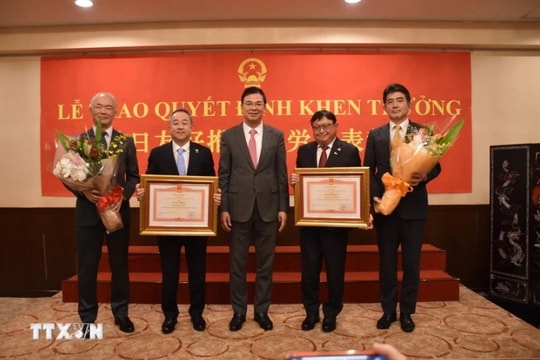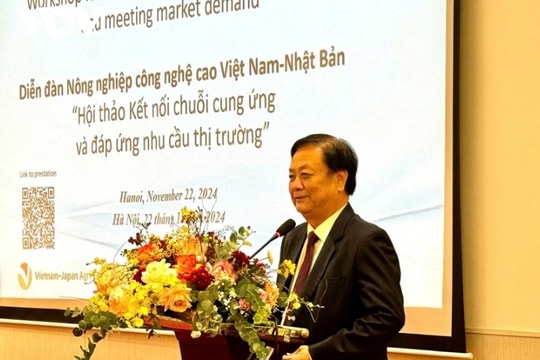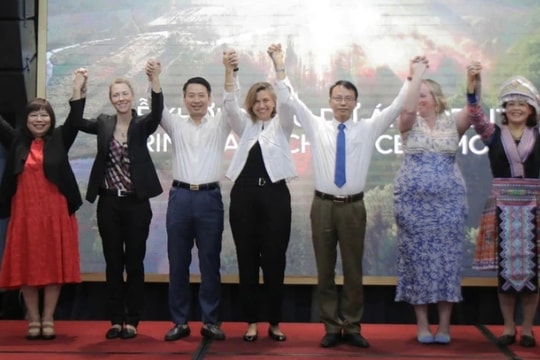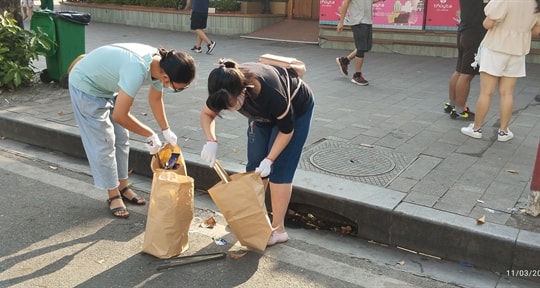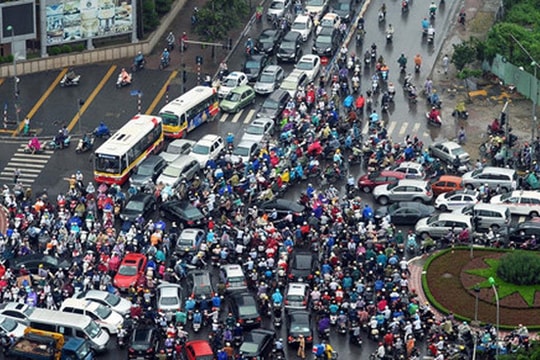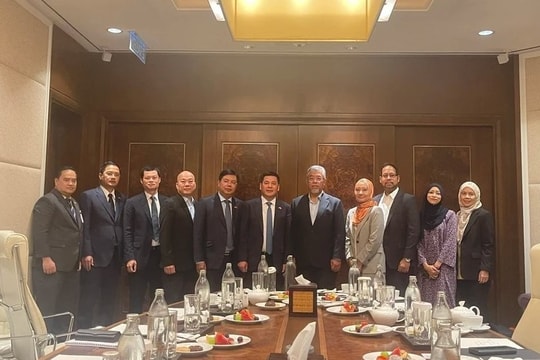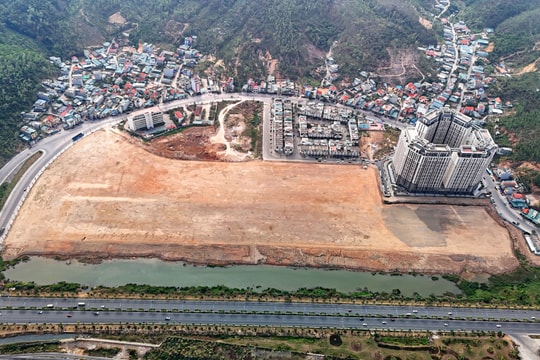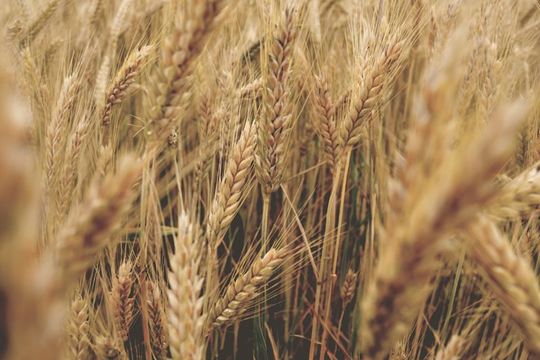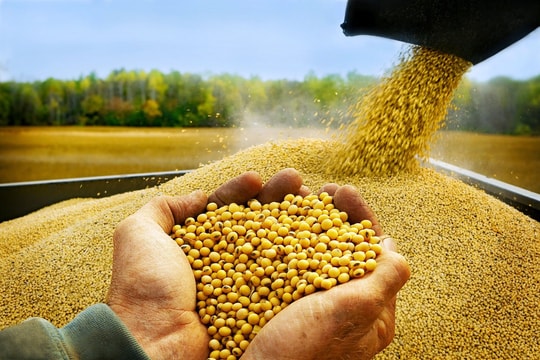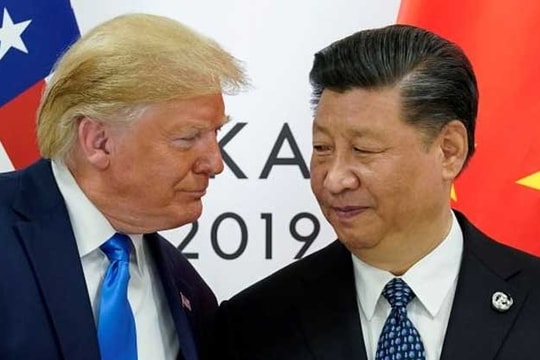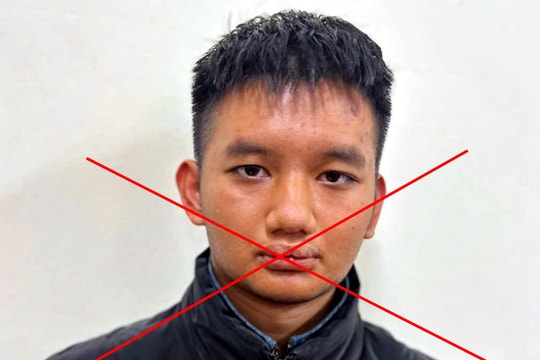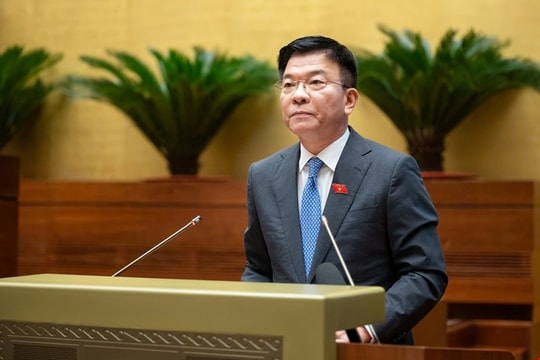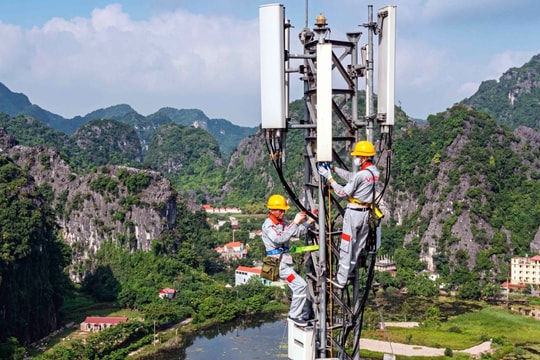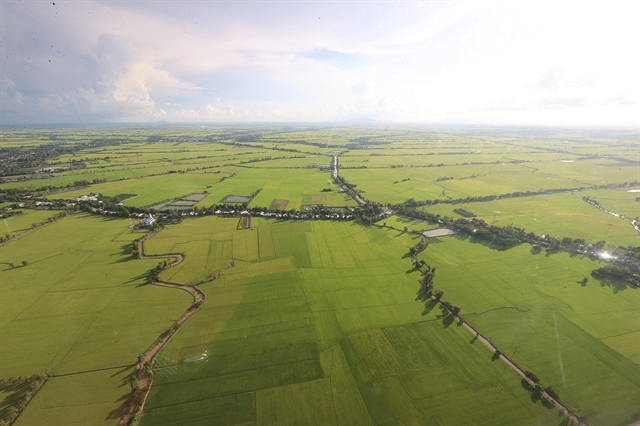 |
| Rice fields in the Mekong Delta region viewed from above. — VNA/VNS Photo Dương Giang |
MEKONG DELTA — Deputy Minister of Planning and Investment Trần Duy Đông said the implementation of the Cửu Long (Mekong Delta) master plan has helped shift the mindset about food security from developing agriculture based primarily on rice to an aquaculture - fruit - rice model to increase value and improve production efficiency.
Speaking at a recent meeting held in Cà Mau province, Đông said that over the past two years of implementing the master plan for 2021-30 period, with a vision towards 2050, ministries and sectors have proactively coordinated with relevant localities to implement solutions appropriate to each period to fully tap new opportunities.
“We aim to achieve the best results in socio-economic development in general and the development of specific sectors in particular, opening up new opportunities and shaping new values throughout the region,” he said.
The Ministry of Planning and Investment has coordinated with relevant ministries and agencies to review mechanisms and policies applied to the region based on proposals from regional localities.
Accordingly, localities in the region are permitted to flexibly convert areas of low-efficiency rice cultivation to grow other crops and fruits.
Rice growers will receive special incentives to stabilise the country's major food production areas, and develop a sustainable agriculture sector in harmony with nature.
Đông instructed the Ministry of Planning and Investment to propose policies tailored for the region regarding clean water supply for local residents, support for areas with clean water shortages, and a mechanism conducive for research and investment in large-scale reservoirs.
He also underlined the need for special mechanisms and policies to lure and train high-quality human resources while attracting investment to address issues such as riverbank and coastal erosion, mitigate the impact of climate change, protect and develop forests, and ensure the welfare of people in coastal areas.
Under the direction of the Government and the Prime Minister, ministries and localities in the region have issued action plans and coordinated closely to implement proposed tasks and solutions decisively, he said.
As a result, regional socio-economic development has gradually stabilised in a more sustainable direction.
The region has established itself as a leading centre for the production and export of rice, aquaculture products, and fruits in the country, contributing to ensuring national food security.
Last year, the region's economic growth hit 6.4 per cent, the second highest rate among the six regions nationwide, nearly 1.3 times higher than the national average. The per capita DRDP increased 10.1 per cent compared to 2022, reaching VNĐ72.3 million (US$2,850).
The regional economic structure continues to shift positively, with a decreasing proportion of agriculture, forestry, and fisheries, an increasing trend in industry and construction, and a slight increase in the service sector.
Last year, the ratios of the three sectors were 30 per cent, 27.6 per cent, and 37 per cent, respectively. — VNS



